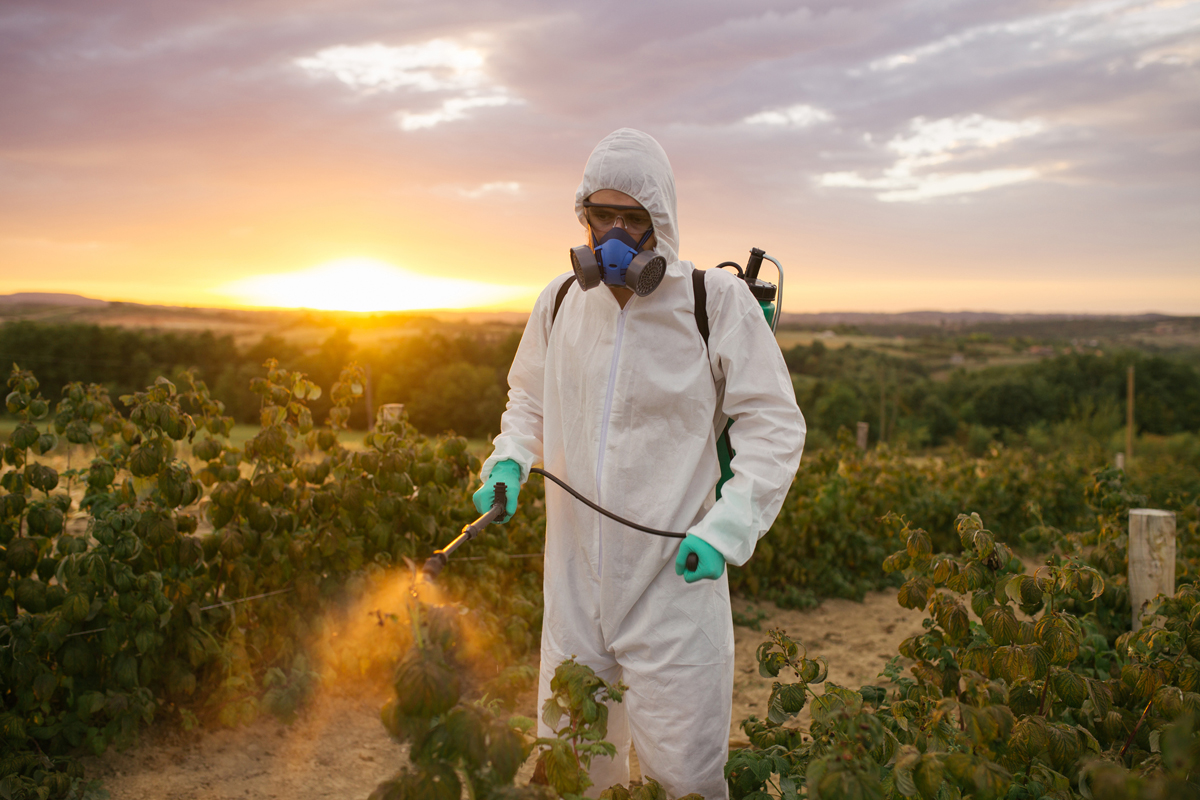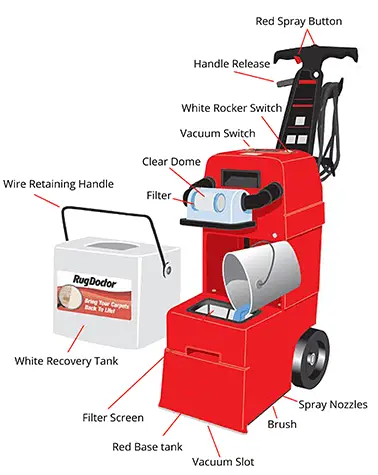What are 5 Ways that you Can Reduce Exposure to Pesticides?
Pesticides are chemicals used to kill pests, including insects, rodents, and weeds, that can harm crops, humans, and the environment. Exposure to pesticides can cause various health problems, such as cancer, neurological disorders, and reproductive issues. Reducing exposure to pesticides is crucial to prevent such health risks. In this response, I will provide five ways to reduce exposure to pesticides.
- Choose organic produce and foods free of pesticides.
- Wash fruits and vegetables thoroughly with water and a scrub brush.
- Use natural pest control methods, such as companion planting and crop rotation.
- Use protective clothing, gloves, and masks when handling pesticides.
- Limit the use of pesticides in your home and garden by using non-toxic alternatives like soap and water, or natural repellents like neem oil.
Choose Organic Produce and Foods Free of Pesticides
Choosing organic produce and foods free of pesticides can be a good decision for a number of reasons. Organic foods are grown without the use of synthetic pesticides, fertilizers, or genetically modified organisms (GMOs). This means that they are free from harmful chemicals that can potentially harm your health and the environment.
Here are some reasons why you might want to choose organic produce and foods free of pesticides:
Health: Organic foods are generally considered to be healthier because they are free of harmful chemicals. Pesticides have been linked to various health problems, including cancer, birth defects, and developmental disorders. By choosing organic produce, you can reduce your exposure to these harmful chemicals and help protect your health.
Environment: Pesticides can have a negative impact on the environment, contaminating soil and water, and harming wildlife. Organic farming practices prioritize sustainability and aim to protect the environment. Choosing organic produce can help support these practices and reduce your environmental footprint.
Taste: Many people find that organic produce tastes better than conventionally grown produce. This is because organic farming practices prioritize soil health, which can result in more flavorful and nutrient-dense produce.
Overall, choosing organic produce and foods free of pesticides can be a good choice for your health, the environment, and the taste of your food. While organic options may be more expensive, the benefits may be worth it.
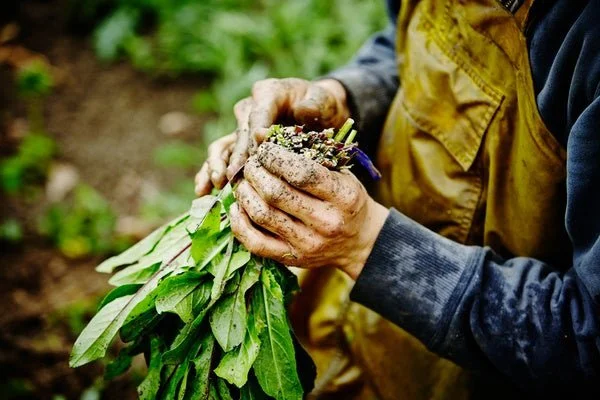
Wash Fruits and Vegetables Thoroughly with Water and Scrub Brush
Washing fruits and vegetables thoroughly with water and a scrub brush is an important step in ensuring that they are safe to eat. Here are some reasons why:
- Pesticides: Many conventionally grown fruits and vegetables are treated with pesticides to kill pests and insects. Even if you choose non-organic produce, washing with water and a scrub brush can help remove some of these chemicals from the surface of the produce.
- Bacteria and germs: Fruits and vegetables can also harbor harmful bacteria and germs, which can make you sick. Washing with water and a scrub brush can help remove these germs and reduce your risk of foodborne illness.
- Dirt and debris: Fruits and vegetables can also accumulate dirt and debris during the growing and harvesting process. Washing with water and a scrub brush can help remove this debris and make your product look and taste better.
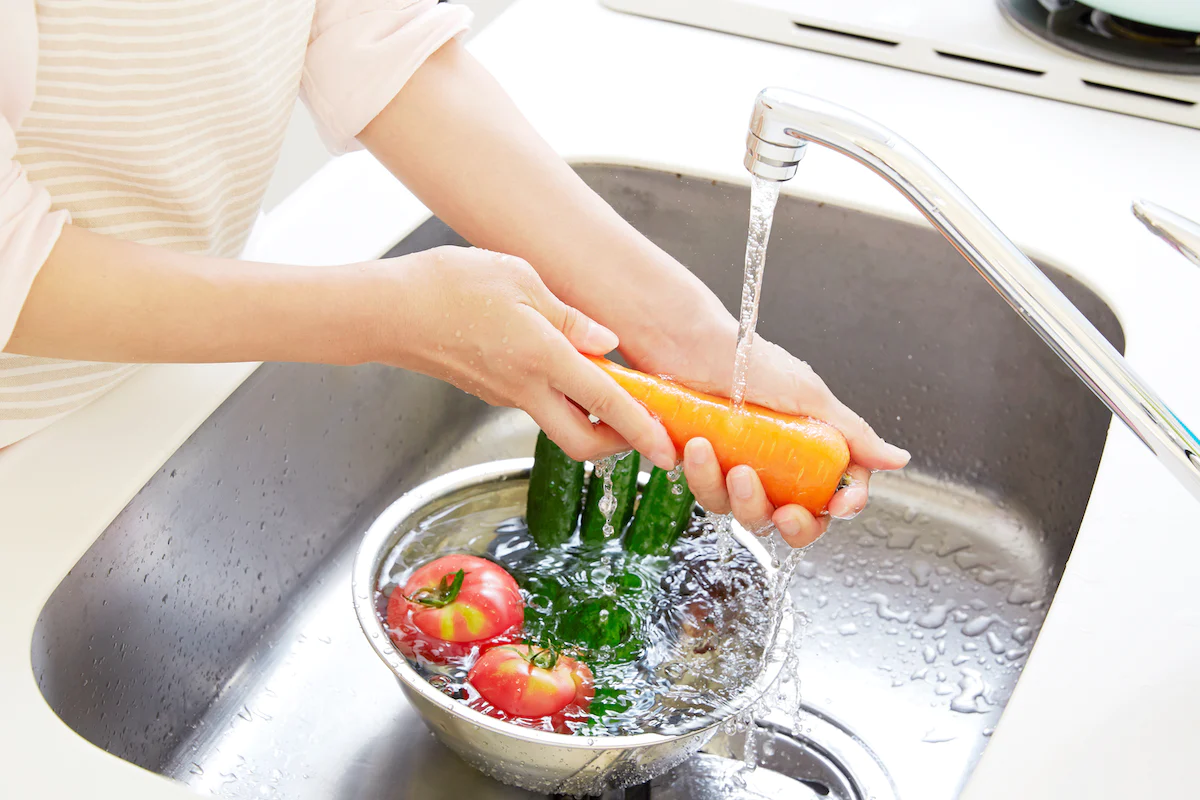
Credit: www.mamasezz.com
Here are Some Tips for Washing Fruits and Vegetables
- Use cold water: Cold water is best for washing produce because it can help preserve the quality and freshness of the produce.
- Use a scrub brush: A scrub brush can help remove dirt and debris from the surface of the produce. Make sure to use a clean brush that is designated for produce washing.
- Dry thoroughly: After washing, make sure to dry your produce thoroughly with a clean towel or paper towel. This can help prevent bacteria growth and extend the shelf life of your produce.
Overall, washing fruits and vegetables thoroughly with water and a scrub brush is an important step in ensuring that they are safe to eat. It can also help remove dirt, debris, and pesticides from the surface of the produce, making it look and taste better.
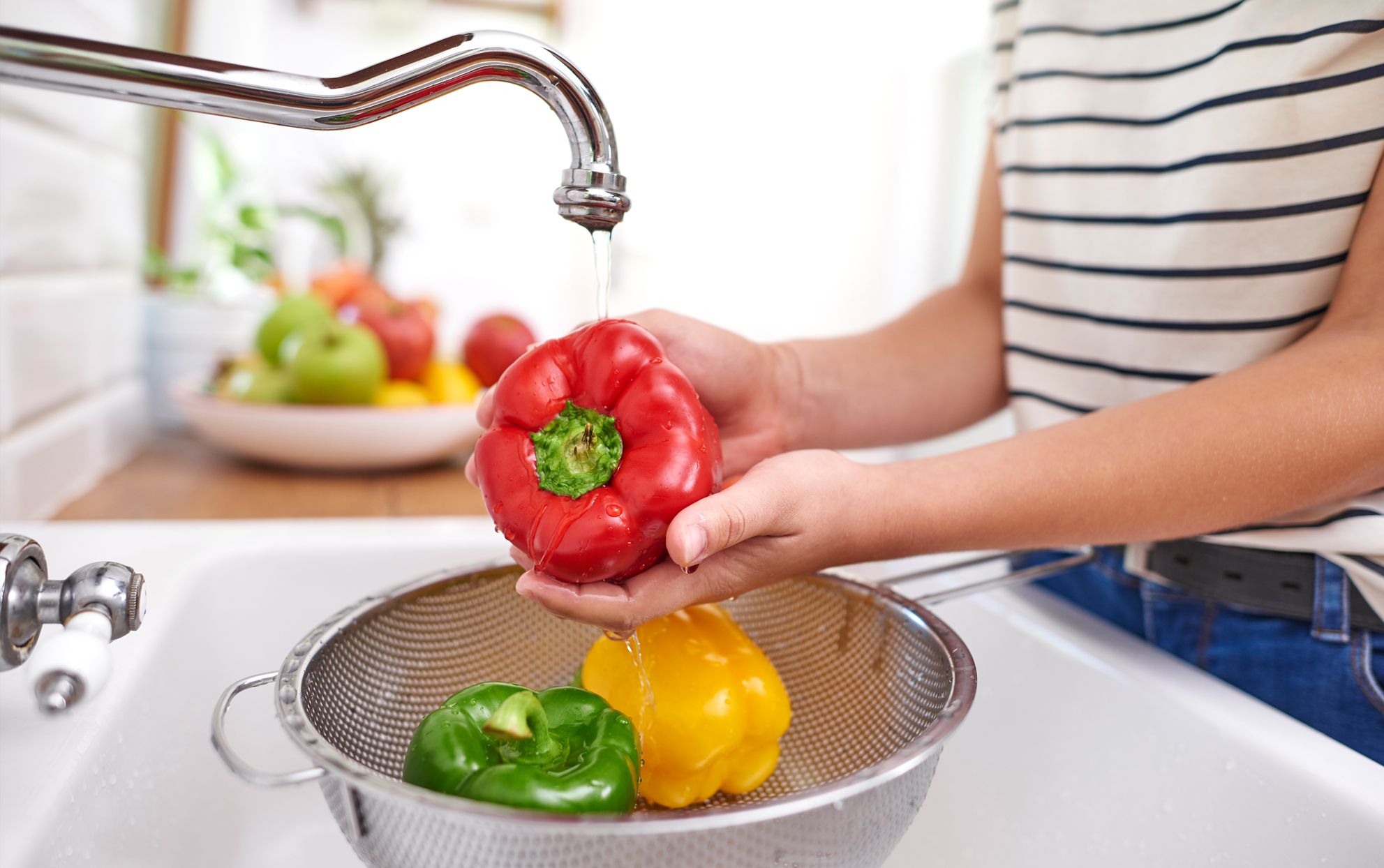
Credit: www.bhg.com
Use Natural Pest Control Methods, Such as Companion Planting and Crop Rotation
Using natural pest control methods, such as companion planting and crop rotation, is a great way to protect your plants without resorting to harmful chemicals. Here are some reasons why:
- Environmental impact: Chemical pesticides can have a negative impact on the environment, harming beneficial insects and wildlife. Natural pest control methods, on the other hand, are safer for the environment and can help maintain a healthy ecosystem.
- Health benefits: Chemical pesticides can also be harmful to human health. By using natural pest control methods, you can reduce your exposure to these harmful chemicals, protecting both yourself and your family.
- Sustainability: Natural pest control methods can help build a more sustainable agriculture system, by reducing the need for costly and harmful pesticides. Companion planting and crop rotation, for example, can help improve soil health, reduce water usage, and minimize erosion.
Use Protective Clothing, Gloves, and Masks When Handling Pesticides
It is important to use protective clothing, gloves, and masks when handling pesticides to minimize the risk of adverse health effects from exposure. Pesticides are chemicals used to control pests such as insects, rodents, and weeds. While they can be effective in controlling these pests, they can also pose a significant risk to human health if not handled properly.
Here are some guidelines for using protective clothing, gloves, and masks when handling pesticides:
- Wear long-sleeved shirts and pants made of a durable fabric that covers your skin.
- Choose chemical-resistant gloves that fit snugly and extend up your forearm. manufacturer’s instructions for proper use.
- Wear safety goggles or a face shield to protect your eyes from contact with pesticides.
- Remove all protective clothing and gear immediately after pesticide application and wash thoroughly before removing the respirator mask.
- Wash contaminated clothing separately from other clothing.
- Store pesticides in their original containers away from food and out of reach of children and pets.
It is also important to follow the manufacturer’s instructions for the safe and effective use of pesticides. This includes using the appropriate amount of product, applying it at the correct time and under the right conditions, and disposing of the pesticide properly. By using protective clothing, gloves, and masks when handling pesticides, we can help minimize the risks associated with exposure to these chemicals.
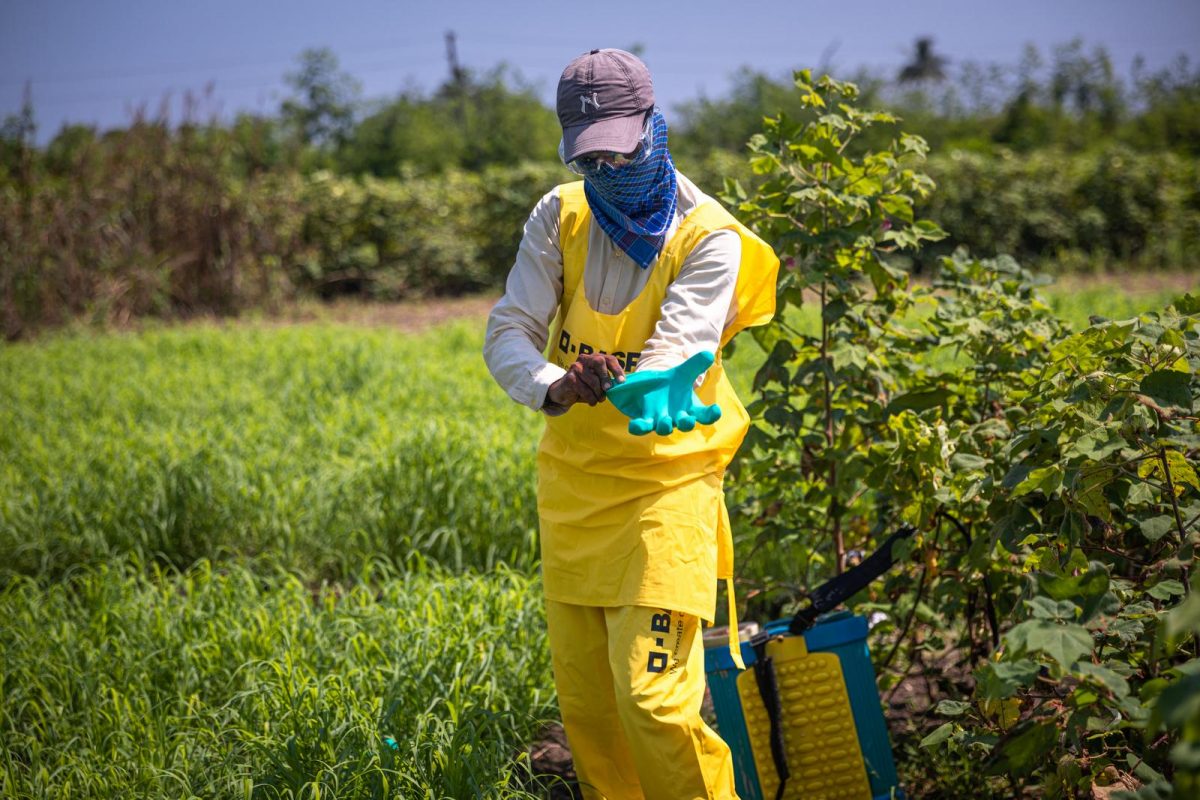
Credit: www.bettercotton.org
Conclusion
Exposure to pesticides can pose a significant risk to human health, but there are steps we can take to reduce this risk. By following the manufacturer’s instructions for the safe use of pesticides and using protective clothing, gloves, and masks when handling them, we can minimize the risk of adverse health effects from exposure. Additionally, we can choose alternative pest control methods such as integrated pest management, which emphasizes prevention and uses non-toxic methods to manage pests. By reducing our reliance on pesticides and taking steps to minimize exposure, we can help protect ourselves, our families, and the environment from the harmful effects of these chemicals.
